
Yanbu: The Pearl of the Red Sea
Nestled along the western coast of Saudi Arabia, Yanbu is a city that seamlessly blends historical charm with modern elegance. Known as the Pearl of the Red Sea, it boasts pristine beaches, crystal-clear waters, and a rich maritime heritage. Yanbu's strategic location has made it an important port city for centuries, and today, it continues to thrive as a hub for commerce and tourism. One of the city's major attractions is Yanbu Al-Bahr, the old town area that still retains its traditional architecture and ambiance. Strolling through its narrow streets, visitors can admire the beautifully preserved coral houses and explore the bustling souks filled with local crafts and spices. The city also offers a glimpse into its past through the Yanbu Historical Museum, which showcases artifacts and exhibits detailing the region's rich history. For nature lovers, Yanbu is a paradise. The city's coastline is dotted with stunning beaches where you can relax and enjoy the sun or engage in water activities like snorkeling and diving. The coral reefs here are among the most vibrant in the Red Sea, teeming with marine life. Additionally, the Yanbu Lake Park provides a serene escape with its lush greenery and well-maintained pathways, perfect for a leisurely walk or a family picnic. Yanbu is also known for its modern industrial area, Yanbu Industrial City, which is a testament to Saudi Arabia's rapid development. This area features impressive infrastructure and facilities, including the King Fahd Industrial Port, one of the largest in the world. While primarily industrial, it offers guided tours that provide insight into the city's economic significance and technological advancements.
Local tips in Yanbu
- Visit Yanbu Al-Bahr in the early morning to avoid the midday heat and experience the bustling souks at their liveliest.
- Don't miss the chance to explore the coral reefs. Local dive shops offer guided tours and equipment rentals.
- Check out the Yanbu Flower Festival if your visit coincides with it. It's a colorful and lively event showcasing millions of flowers.
- Make sure to dress modestly, as Yanbu is a conservative city. Respect local customs and traditions.
- Hire a local guide to get the most out of your visit to Yanbu Historical Museum and learn about the city's fascinating history.
- Book accommodation in advance, especially during peak tourist seasons, to ensure you get the best options available.
Yanbu: The Pearl of the Red Sea
Nestled along the western coast of Saudi Arabia, Yanbu is a city that seamlessly blends historical charm with modern elegance. Known as the Pearl of the Red Sea, it boasts pristine beaches, crystal-clear waters, and a rich maritime heritage. Yanbu's strategic location has made it an important port city for centuries, and today, it continues to thrive as a hub for commerce and tourism. One of the city's major attractions is Yanbu Al-Bahr, the old town area that still retains its traditional architecture and ambiance. Strolling through its narrow streets, visitors can admire the beautifully preserved coral houses and explore the bustling souks filled with local crafts and spices. The city also offers a glimpse into its past through the Yanbu Historical Museum, which showcases artifacts and exhibits detailing the region's rich history. For nature lovers, Yanbu is a paradise. The city's coastline is dotted with stunning beaches where you can relax and enjoy the sun or engage in water activities like snorkeling and diving. The coral reefs here are among the most vibrant in the Red Sea, teeming with marine life. Additionally, the Yanbu Lake Park provides a serene escape with its lush greenery and well-maintained pathways, perfect for a leisurely walk or a family picnic. Yanbu is also known for its modern industrial area, Yanbu Industrial City, which is a testament to Saudi Arabia's rapid development. This area features impressive infrastructure and facilities, including the King Fahd Industrial Port, one of the largest in the world. While primarily industrial, it offers guided tours that provide insight into the city's economic significance and technological advancements.
When is the best time to go to Yanbu?
Iconic landmarks you can’t miss
Yanbu Lake Park
Explore Yanbu Lake Park, a serene escape in Saudi Arabia, featuring lush landscapes, vibrant birdlife, and scenic trails for a perfect day outdoors.
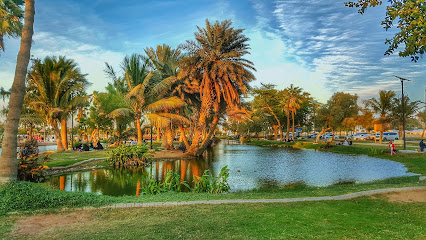
Waterfront Industrial Yanbu
Explore the blend of natural beauty and industrial charm at Waterfront Industrial Yanbu, a stunning beach destination on the Red Sea coast.
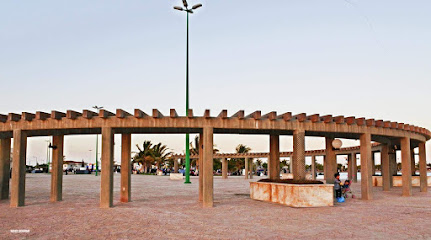
Alsubh Park
Discover tranquility at Alsubh Park in Yanbu, a perfect blend of nature, recreation, and stunning seaside views for every traveler.
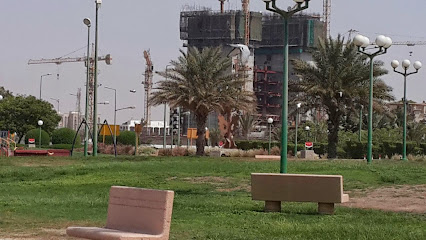
Celebration Park
Experience the serene beauty of Celebration Park in Yanbu, a perfect blend of nature, relaxation, and recreational activities for all ages.
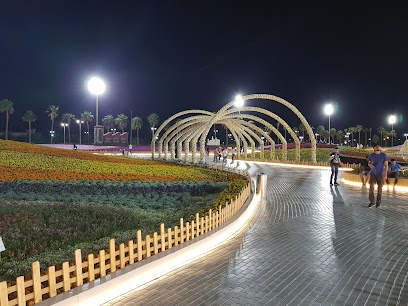
Yanbu Cornishe
Discover Yanbu Corniche: A stunning coastal park perfect for relaxation, scenic walks, and cultural experiences along the beautiful Red Sea.
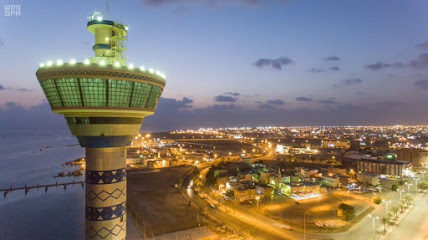
Youth beach
Experience the vibrant atmosphere and sandy shores of Youth Beach in Yanbu, a perfect destination for relaxation and beach volleyball.
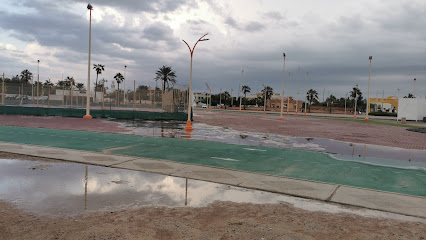
Waterfront Beach Royal Commission Yanbu
Experience the serene beauty of Waterfront Beach Royal Commission Yanbu, a perfect destination for relaxation, family fun, and stunning waterfront views.
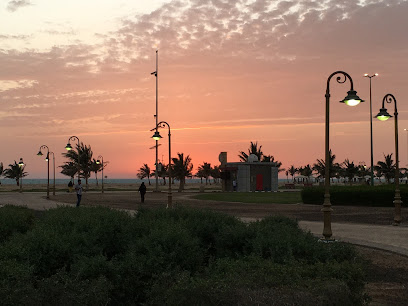
Yanbu Historic Area
Discover the enchanting Yanbu Historic Area, a cultural gem of Saudi Arabia filled with rich history, traditional architecture, and vibrant local life.
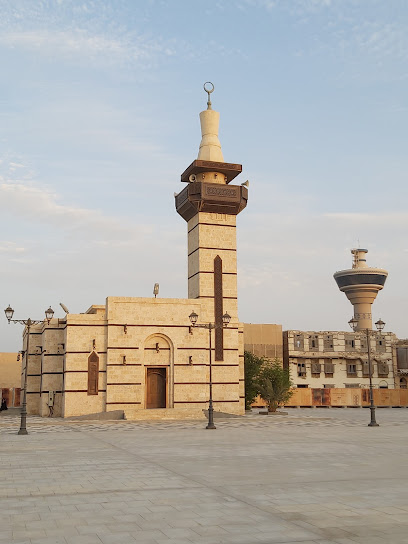
حديقة النورس
Discover Al-Nouras Garden in Yanbu, a serene oasis of lush greenery and vibrant blooms, perfect for relaxation and family outings in Saudi Arabia.
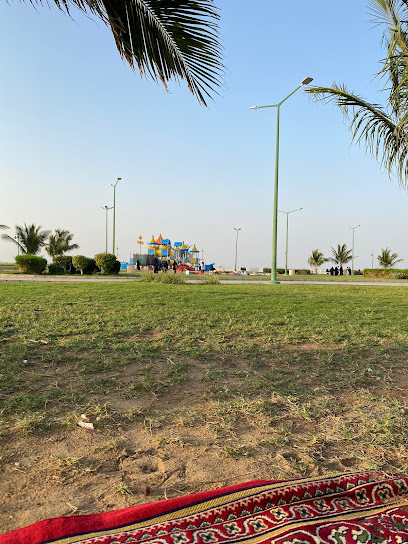
Peninsula stems
Explore the breathtaking beauty and cultural significance of Peninsula Stems, a serene garden and cultural landmark in Yanbu, Saudi Arabia.
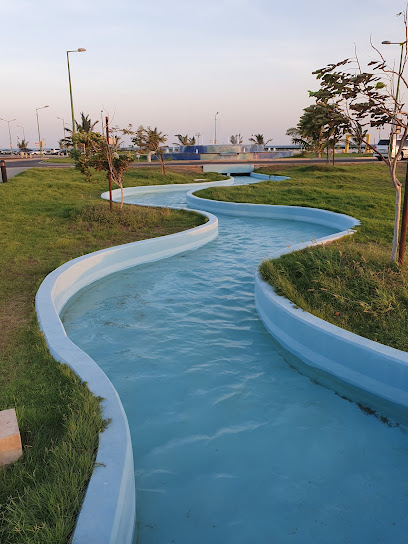
Night market
Discover the charm of Yanbu's Night Market, a vibrant blend of local culture, delicious street food, and unique handmade treasures.
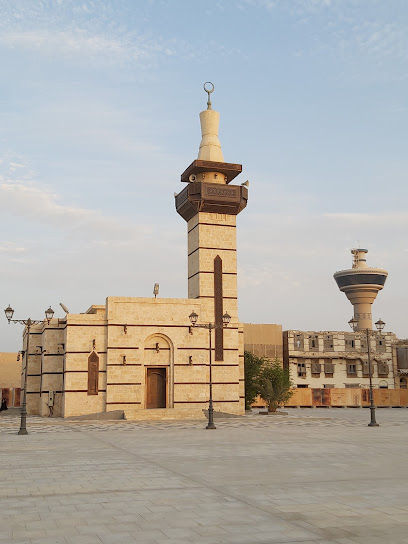
Al Fairouz Park
Experience tranquility at Al Fairouz Park, a lush green oasis in Yanbu, perfect for relaxation, family outings, and enjoying nature's beauty.
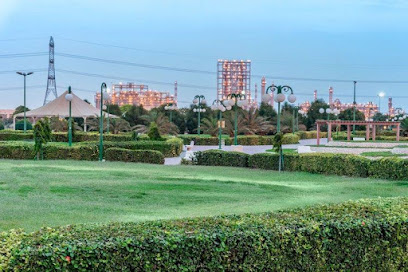
Historical Yanbu
Explore Yanbu's Historical Archaeological Museum, where ancient artifacts bring the rich heritage of the region to life, perfect for history lovers and curious travelers.
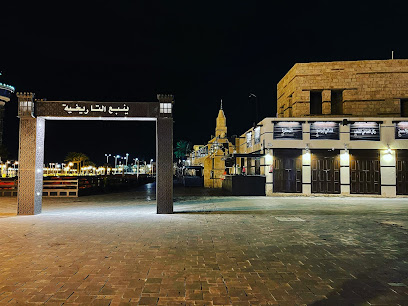
China Park/waterfront Park Yanbu
Discover the serene beauty of China Park, a lush waterfront oasis in Yanbu perfect for relaxation, family fun, and scenic strolls.
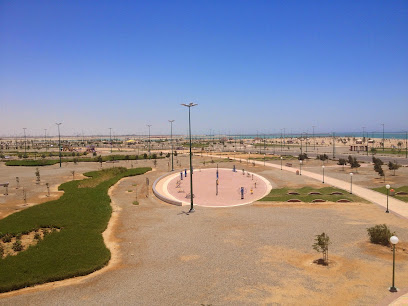
الجزيرة بالهيئة الملكية
Explore the picturesque Royal Island park in Yanbu, a serene escape with lush greenery, walking paths, and perfect spots for picnics and relaxation.
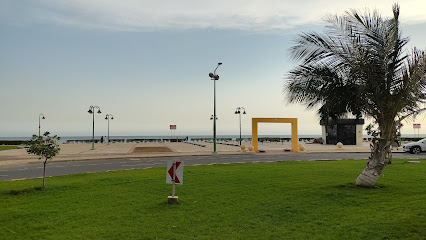
Unmissable attractions to see
Yanbu Lake Park
Explore the serene beauty of Yanbu Lake Park, a perfect blend of nature and relaxation in the heart of Yanbu, Saudi Arabia.
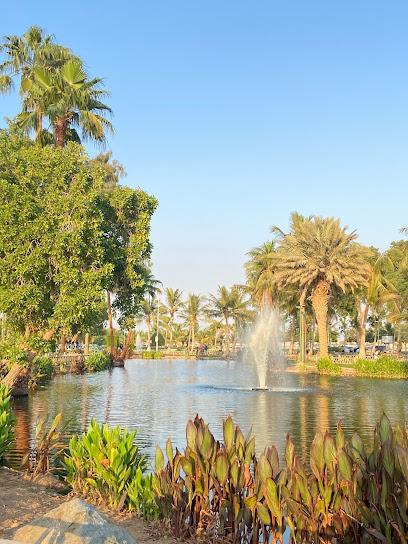
Alsubh Park
Experience the lush greenery and serene atmosphere of Alsubh Park in Yanbu, a perfect getaway for relaxation and outdoor fun.
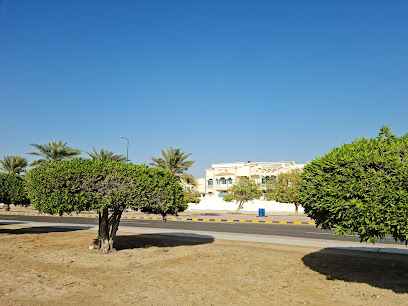
Celebration Park
Discover Celebration Park in Yanbu, a tranquil retreat filled with lush greenery, recreational activities, and beautiful landscapes perfect for relaxation.
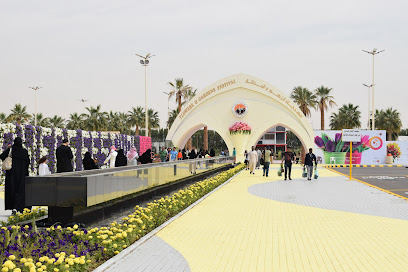
Peninsula stems
Discover the enchanting landscapes and cultural significance of Peninsula Stems, a must-visit garden and tourist attraction in Yanbu, Saudi Arabia.
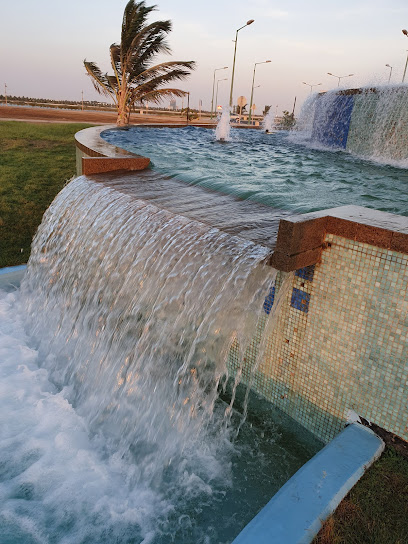
Night market
Explore the Night Market in Yanbu for a vibrant mix of local culture, delicious street food, and unique shopping experiences that celebrate Saudi Arabian heritage.
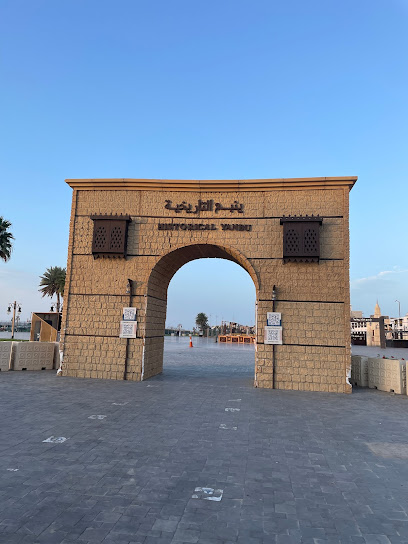
Al Fairouz Park
Explore the tranquility of Al Fairouz Park in Yanbu, where lush landscapes and family-friendly activities blend into a perfect outdoor experience.
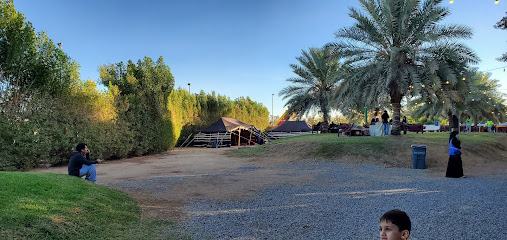
Historical Yanbu
Explore Historical Yanbu: A captivating blend of archaeological wonders and vibrant local culture along the stunning Red Sea coast.
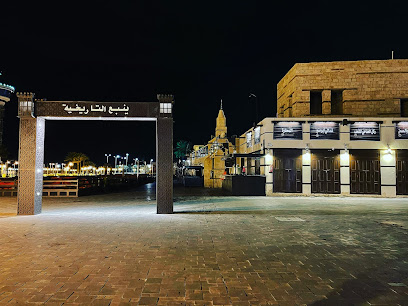
Al Nawras Island
Discover the serene beauty of Al Nawras Island, a coastal park in Yanbu, where azure waters and lush landscapes create a perfect escape.
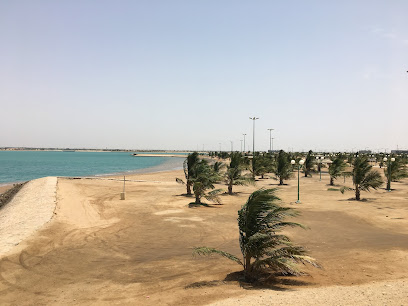
Sea Side
Discover the breathtaking beauty of Sea Side in Yanbu, where stunning coastal views meet rich local culture and unforgettable experiences await.
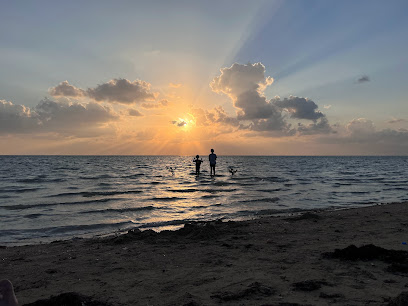
Yanbu Heritage Park
Discover the serene landscapes and cultural richness of Yanbu Heritage Park, an ideal escape for nature lovers and cultural enthusiasts.
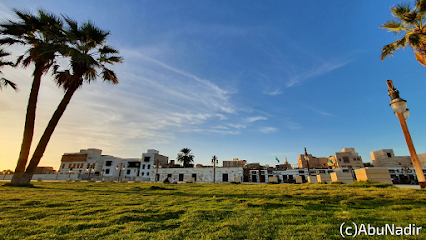
شاطئ للسباحة
Explore the tranquil beauty of Al Nuzhah Beach in Yanbu, Saudi Arabia - a perfect escape for relaxation, family fun, and unforgettable sunsets.
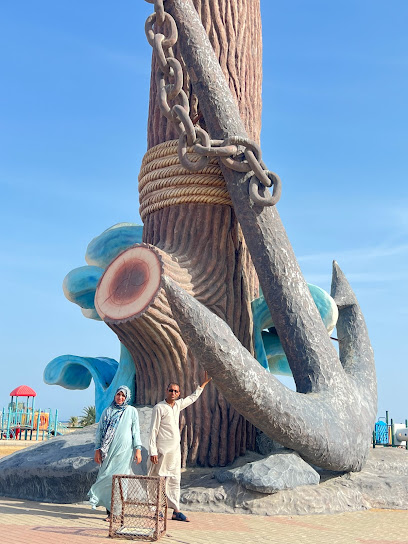
Sign of #Night_Souq سوق_الليل#
Experience the vibrant culture and culinary delights of Yanbu at the enchanting Night Souq, where tradition meets modernity under the stars.
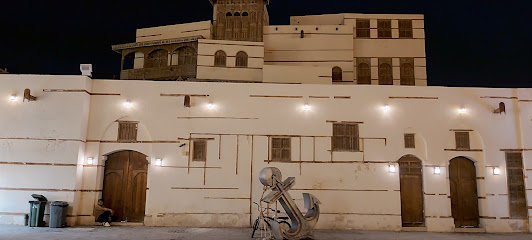
YAMBU - ( 2)
Explore YAMBU in Yanbu: A stunning blend of nature, culture, and unforgettable experiences awaits every traveler.
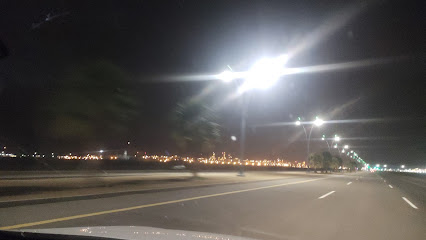
Rooftop View Yanbu
Discover stunning panoramic views of Yanbu and the Red Sea at Rooftop View Yanbu, an unforgettable tourist attraction.
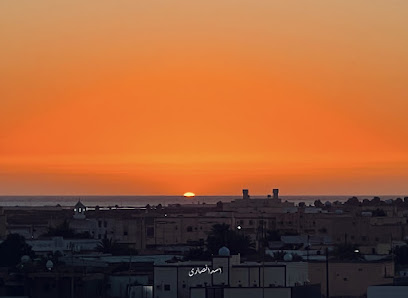
Essential places to dine
Damascene grill
Experience the essence of Syrian cuisine at Damascene Grill – where every bite is a journey through rich flavors and traditions.
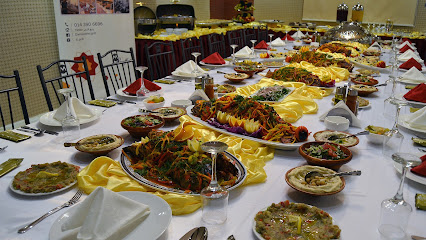
Quraafi Restaurant
Discover exquisite seafood at Quraafi Restaurant in Yanbu, where fresh catches meet stunning views and vibrant local culture.
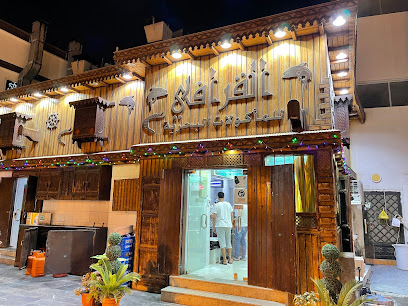
Al Marsah Sea Food Restaurant
Discover culinary delights at Al Marsah Sea Food Restaurant in Yanbu - where fresh seafood meets breathtaking coastal views.
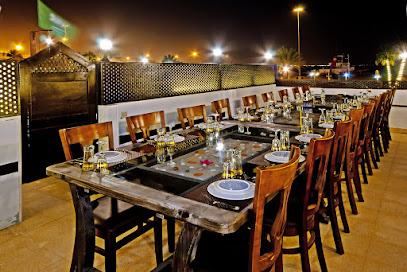
The Ocean Restaurant
Experience the exquisite fusion of Indian and Chinese cuisine at The Ocean Restaurant in Yanbu for an unforgettable dining adventure.
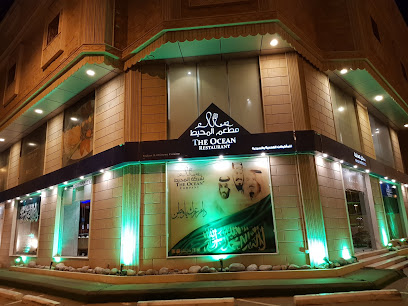
منتزه ومطعم الجداف للمأكولات البحرية
Discover exceptional seafood delights at Al Jaddaf Restaurant in Yanbu, where fresh flavors meet stunning waterfront views.
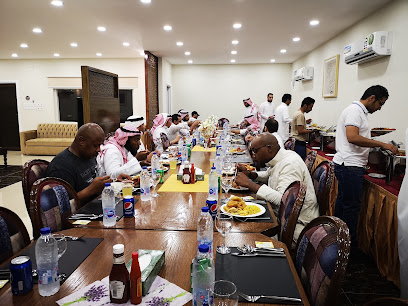
مطعم ومقهي قوزيل سراي
Experience the best of local seafood at Cozil Saray in Yanbu - where flavor meets tradition in every bite.
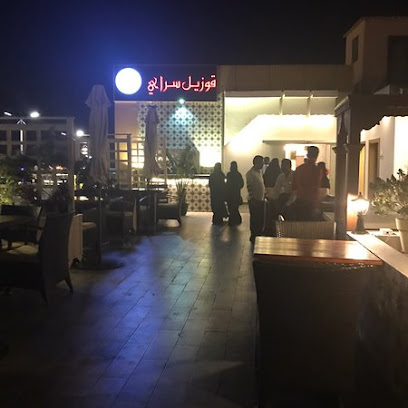
Ozone Seafood Restaurant
Discover fresh flavors at Ozone Seafood Restaurant in Yanbu, where every dish is a celebration of the sea's bounty.
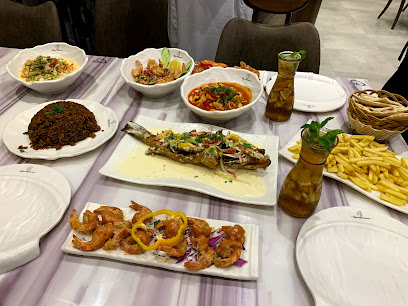
Quraafi for Seafood
Discover fresh seafood delights at Quraafi for Seafood in Yanbu – where every meal is a celebration of oceanic flavors.
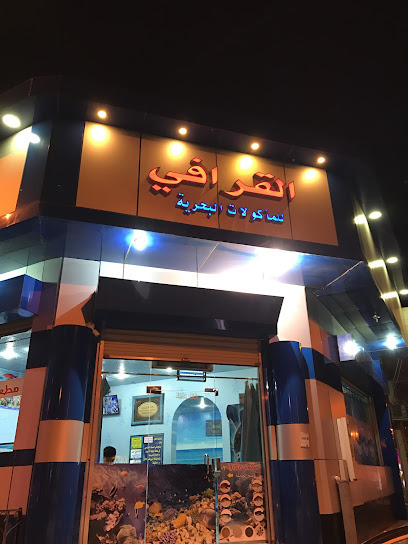
مطعم شاهين بالهيئه الملكيه
Experience authentic Pakistani flavors at مطعم شاهين بالهيئه الملكيه in Yanbu - where every dish tells a story.
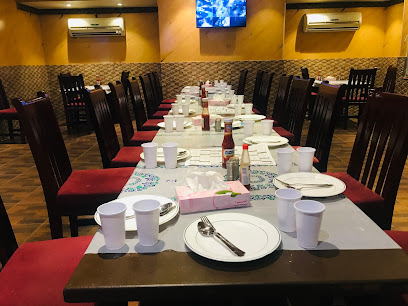
Al Marsah Seafood Restaurant
Experience exquisite seafood dining at Al Marsah Seafood Restaurant in Yanbu, where fresh catches meet stunning coastal views.
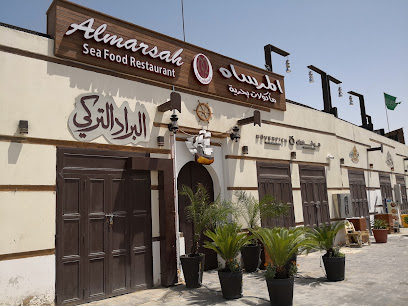
Sultan Grill
Experience the rich flavors of Middle Eastern cuisine at Sultan Grill in Yanbu – where every dish tells a story.
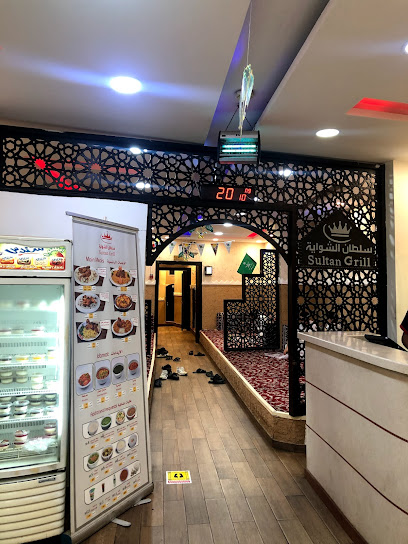
Hawa Lebanon Restaurant
Experience authentic Lebanese cuisine at Hawa Lebanon Restaurant in Yanbu – where every meal tells a story.
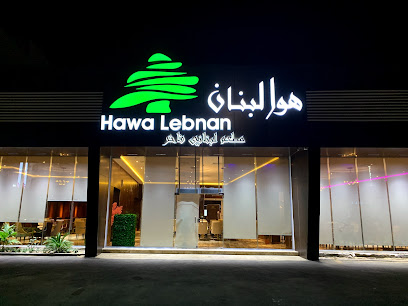
Yanbu Al-Balad Fish Restaurant
Experience authentic Saudi seafood at Yanbu Al-Balad Fish Restaurant—where every dish tells a story of tradition and flavor.
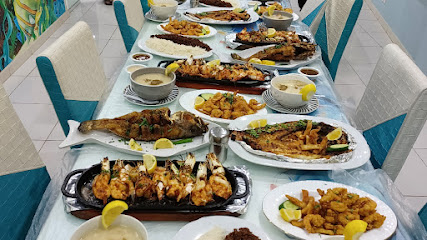
MEDRARA RESTAURANT
Discover authentic Saudi flavors at Medrara Restaurant in Yanbu – where every meal is a celebration of local culinary traditions.
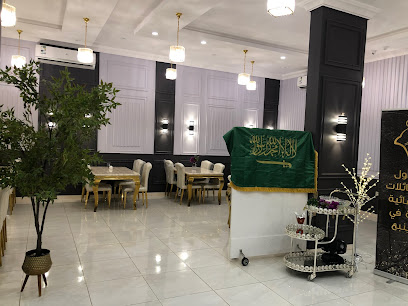
Aryaas India Restaurant - Yanbu
Experience the vibrant flavors of Indian cuisine at Aryaas India Restaurant in Yanbu - A culinary journey through Asia awaits you.
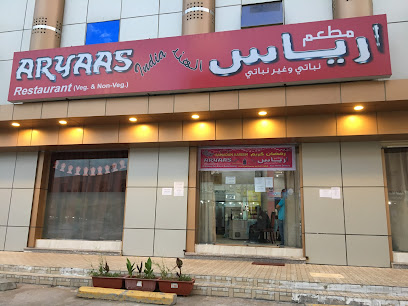
Markets, malls and hidden boutiques
Dana Mall
Explore Dana Mall in Yanbu, a shopping paradise with a variety of stores, dining options, and entertainment for the whole family.
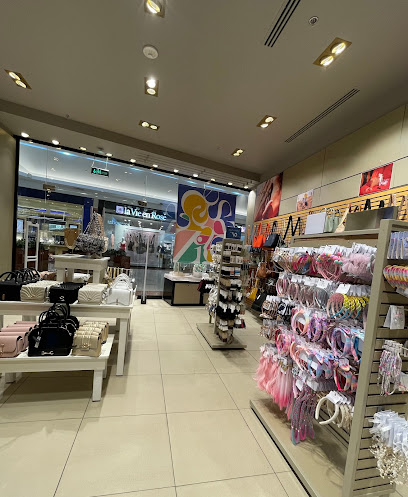
HYPER PANDA YANBU, DANA MALL YANBU
Discover the vibrant shopping experience at Hyper Panda, Dana Mall Yanbu, where local culture meets convenience in a modern hypermarket setting.
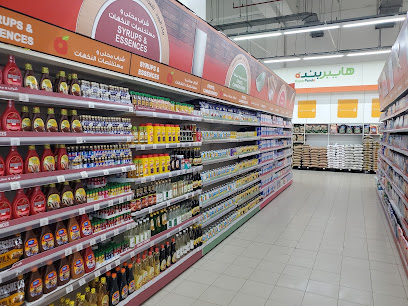
Top Center
Discover the vibrant shopping scene at Top Center, Yanbu's premier shopping mall, featuring diverse retail options and delightful dining experiences.
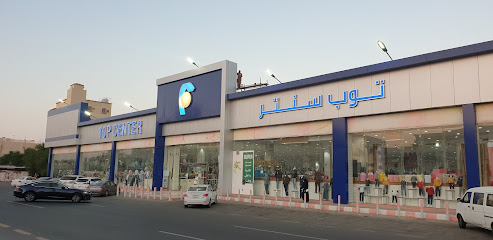
ينبع مول
Discover shopping, dining, and entertainment at Yanbu Mall, a vibrant destination in the heart of Saudi Arabia's Yanbu.
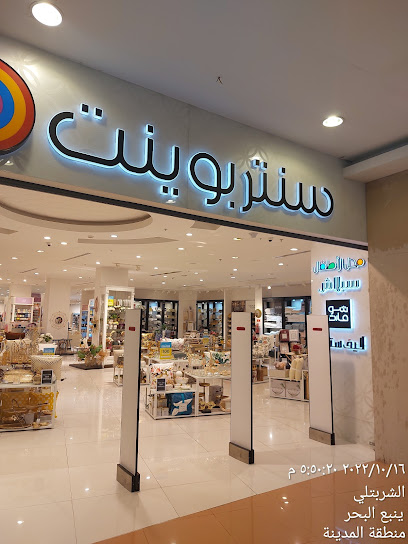
5 riyal shop
Explore the 5 Riyal Shop in Yanbu for an unbeatable shopping experience filled with diverse goods at incredible prices.
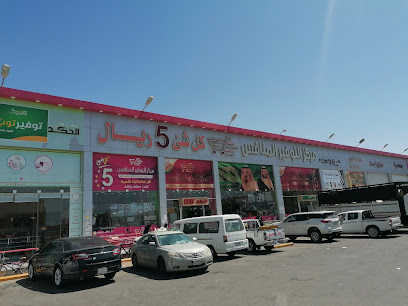
Al Jawhara Mall
Experience shopping and local culture at Al Jawhara Mall in Yanbu, where a diverse range of stores awaits visitors.
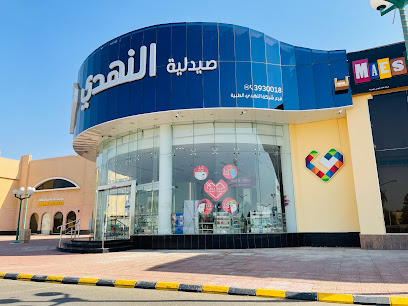
Universal Cold Store
Explore local flavors and affordable groceries at Universal Cold Store, Yanbu's beloved discount supermarket for tourists and locals alike.
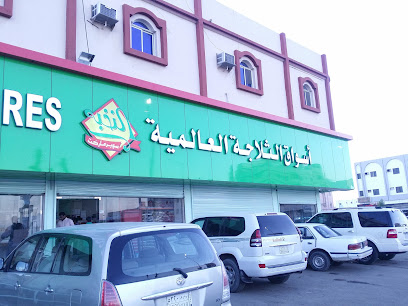
Lulu Hypermarket, Yanbu
Discover the vibrant Lulu Hypermarket in Yanbu, the ultimate shopping destination for diverse products, from fresh produce to fashion.
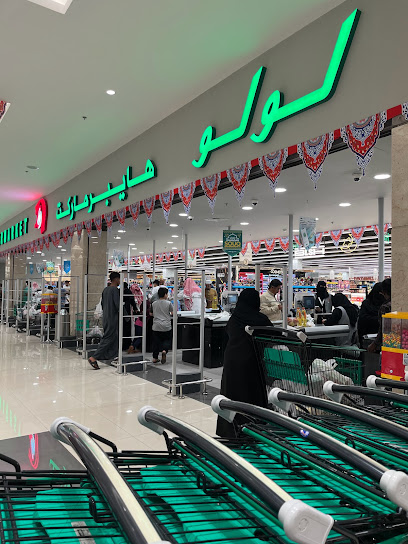
Royal Plaza,Yanbu
Discover the vibrant shopping experience at Royal Plaza in Yanbu, where retail therapy meets delightful dining in a modern environment.
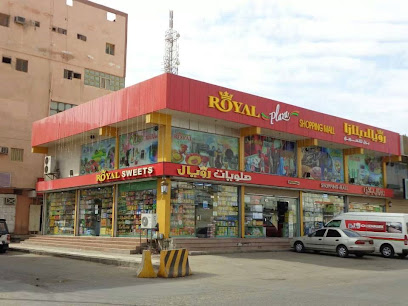
Yanbu International Market
Experience the vibrant shopping atmosphere of Yanbu International Market, where local culture and modern retail come together for an unforgettable visit.
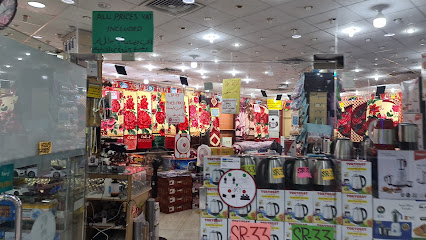
Home Box Yanbu
Discover stylish and affordable furniture at Home Box Yanbu, the ultimate shopping destination for tourists seeking home decor inspiration.
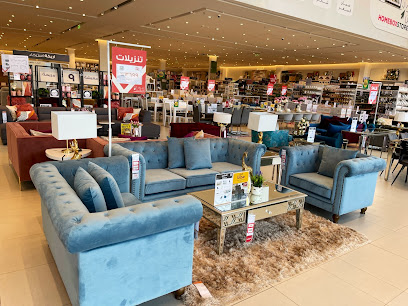
Town Mall
Discover the Town Mall in Yanbu – A Shopping Haven with Dining, Entertainment, and Cultural Experiences Awaiting You.
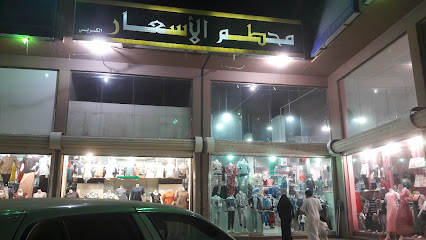
Yanbu Haraj حراج ينبع
Explore Yanbu Haraj for unique used furniture and artisanal crafts that showcase local culture and craftsmanship.
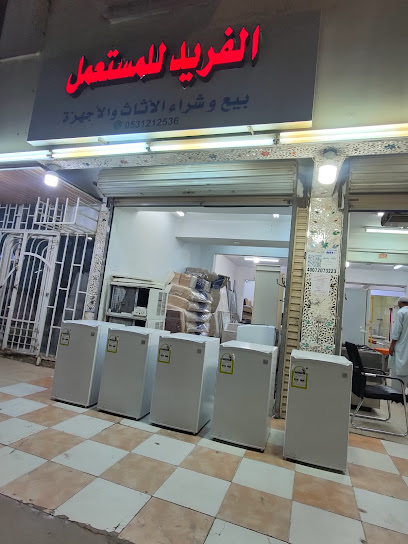
Baba Sweets
Experience the rich flavors of Pakistani sweets at Baba Sweets in Yanbu, where every bite is a delightful journey into tradition and taste.
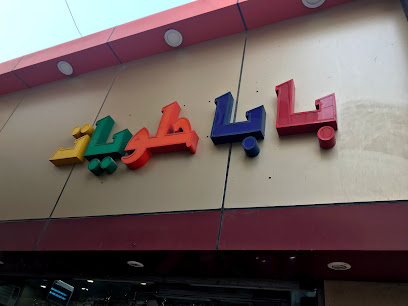
othaim mall
Explore Othaim Mall in Yanbu for a delightful shopping experience with diverse retail options, dining, and entertainment for all ages.
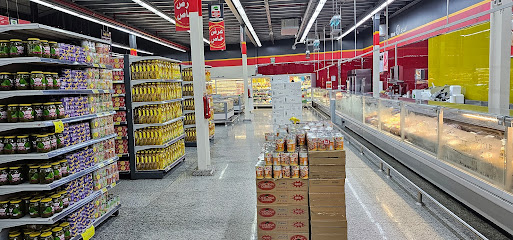
Essential bars & hidden hideouts
Damascene grill
Experience authentic Syrian flavors at Damascene Grill, a must-visit restaurant in Yanbu for delicious barbecued dishes and Middle Eastern delights.
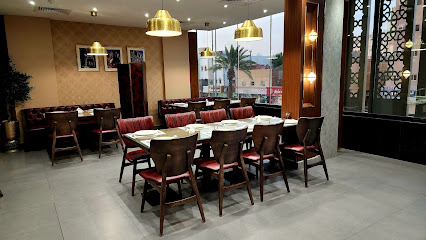
Quraafi Restaurant
Experience the best of Yanbu's seafood at Quraafi Restaurant, where fresh catches meet stunning coastal views.
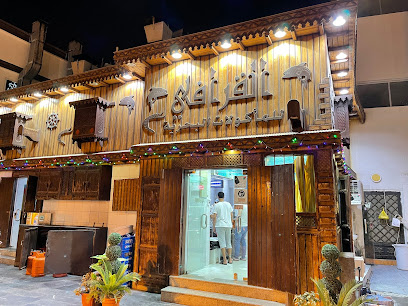
ibis Yanbu Saudi Arabia
Experience modern comfort and hospitality at ibis Yanbu, your ideal base for exploring the enchanting seaside city of Yanbu, Saudi Arabia.
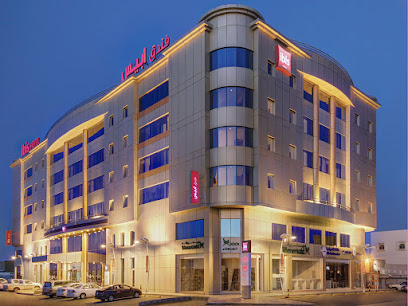
Ozone Seafood Restaurant
Experience the best of fresh seafood at Ozone Seafood Restaurant, where delightful flavors meet stunning coastal views in Yanbu.
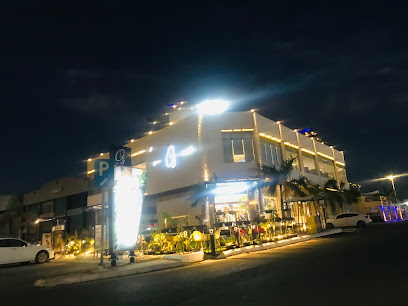
Quraafi for Seafood
Discover the best seafood dining experience in Yanbu at Quraafi for Seafood, where freshness meets flavor in every dish.
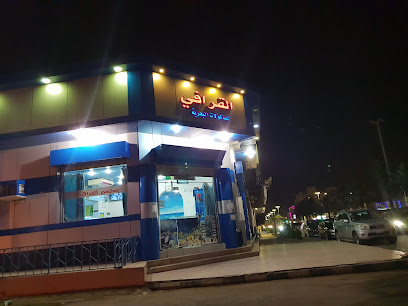
Kaylah Lounge
Discover relaxation at Kaylah Lounge in Yanbu, where gourmet coffee meets a cozy atmosphere for the perfect getaway.
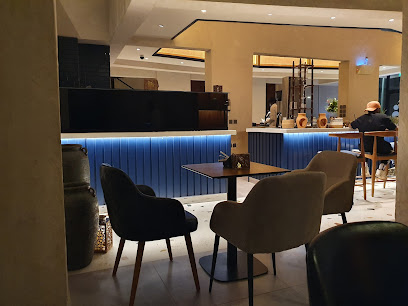
Hawa Lebanon Restaurant
Experience authentic Lebanese cuisine at Hawa Lebanon Restaurant in Yanbu, where every dish tells a story of flavor and tradition.
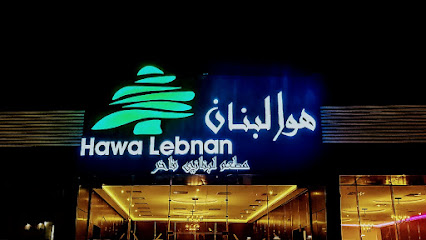
Aryaas India Restaurant - Yanbu
Discover the flavors of India at Aryaas India Restaurant, a culinary oasis in Yanbu offering authentic dishes and a delightful dining experience.
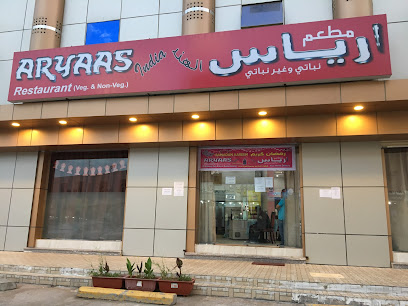
The Shangri-la Chinese Restaurant
Discover the authentic flavors of Chinese and Japanese cuisine at The Shangri-la Chinese Restaurant in Yanbu, where every dish tells a story.
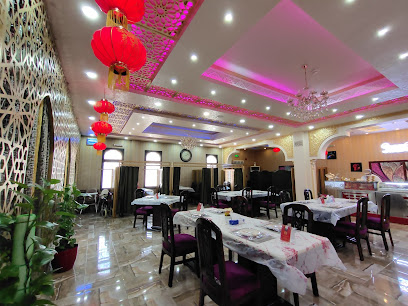
HOTEL PARWAZ
Discover the rich flavors of Hyderabadi cuisine at Hotel Parwaz in Yanbu, a perfect spot for food lovers seeking authentic dining experiences.
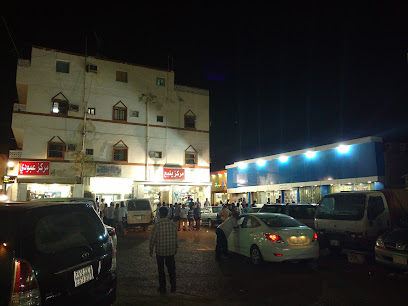
Barn's | بارنز
Discover Barn's in Yanbu - a coffee lover's paradise with a cozy ambiance, delightful pastries, and expertly crafted brews.
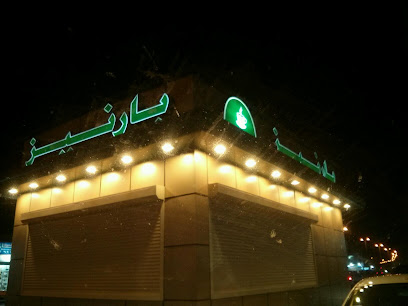
سيريه الحارة
Experience authentic Saudi flavors at سيريه الحارة in Yanbu, where delicious dishes and warm hospitality create an unforgettable dining experience.
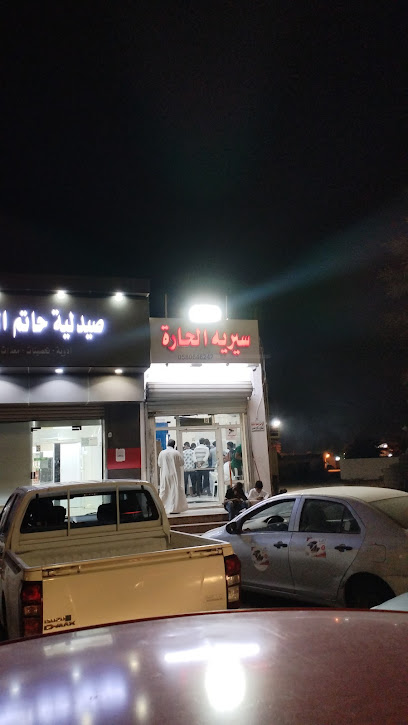
طيبات ينبع (كافيتيريا الروشان سابقا)
Explore the rich flavors and authentic dishes at طيبات ينبع in Yanbu, a budget-friendly restaurant offering a warm and welcoming atmosphere.
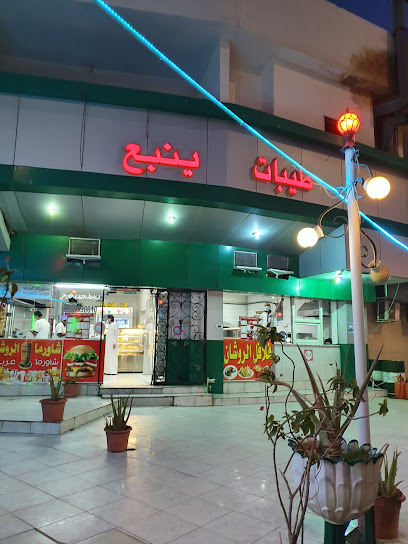
لاونج الوقت الممتع & Fun time lounge
Discover the vibrant atmosphere of Fun Time Lounge in Yanbu, where flavorful hookah, delightful dining, and entertainment come together for an unforgettable experience.
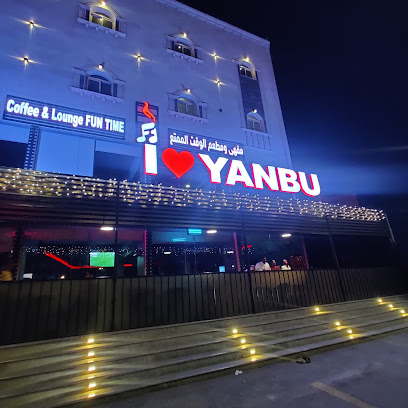
Local Phrases
-
- Helloمرحبا
[Marhaba] - Goodbyeوداعا
[Wada'an] - Yesنعم
[Naam] - Noلا
[La] - Please/You're welcomeمن فضلك
[Min fadlik] - Thank youشكرا لك
[Shukran lak] - Excuse me/Sorryعذرا
[A'zra] - How are you?كيف حالك؟
[Kayfa halak?] - Fine. And you?بخير. وأنت؟
[Bikhayr. Wa anta?] - Do you speak English?هل تتحدث الإنجليزية؟
[Hal tatahadath al'injilizia?] - I don't understandلا أفهم
[La afham]
- Helloمرحبا
-
- I'd like to see the menu, pleaseأريد رؤية القائمة، من فضلك
[Aurid ru'ya alqaimah, min fadlik] - I don't eat meatلا آكل اللحم
[La akul allahm] - Cheers!في صحتك!
[Fi sahtak!] - I would like to pay, pleaseأريد الدفع، من فضلك
[Aurid aldaf', min fadlik]
- I'd like to see the menu, pleaseأريد رؤية القائمة، من فضلك
-
- Help!النجدة!
[Alnajdah!] - Go away!اذهب بعيدا!
[Ithhab ba'idan!] - Call the Police!اتصل بالشرطة!
[Itsal bialshurta!] - Call a doctor!اتصل بطبيب!
[Itsal bitalib!] - I'm lostضاعت طريقي
[Da'at tariqi] - I'm illأنا مريض
[Ana mareed]
- Help!النجدة!
-
- I'd like to buy...أريد شراء...
[Aurid shira...] - I'm just lookingأنا فقط أتفرج
[Ana faqat atfarg] - How much is it?كم سعره؟
[Kam si'ruhu?] - That's too expensiveهذا غالي جدا
[Hatha ghali jiddan] - Can you lower the price?هل يمكنك خفض السعر؟
[Hal yumkinuka khafd alsir?]
- I'd like to buy...أريد شراء...
-
- What time is it?كم الساعة؟
[Kam alsaa'ah?] - It's one o'clockالساعة الواحدة
[Alsa'ah alwahidah] - Half past (10)الساعة العاشرة والنصف
[Alsa'ah al'ashirah wanisf] - Morningالصباح
[Alsubah] - Afternoonالظهر
[Althuhr] - Eveningالمساء
[Almasa'] - Yesterdayأمس
[Ams] - Todayاليوم
[Alyawm] - Tomorrowغدا
[Ghadan] - 1واحد
[Wahid] - 2اثنين
[Ithnayn] - 3ثلاثة
[Thalatha] - 4أربعة
[Arba'ah] - 5خمسة
[Khamsah] - 6ستة
[Sittah] - 7سبعة
[Sab'ah] - 8ثمانية
[Thamania] - 9تسعة
[Tis'ah] - 10عشرة
[Asharah]
- What time is it?كم الساعة؟
-
- Where's a/the...?أين ...؟
[Ayna ...?] - What's the address?ما هو العنوان؟
[Ma huwa al'unaan?] - Can you show me (on the map)?هل يمكنك أن تريني (على الخريطة)؟
[Hal yumkinuka an tureeni (ala alkharitah)?] - When's the next (bus)?متى يأتي الحافلة التالية؟
[Mata ya'ti alhafilat altaliyah?] - A ticket (to ....)تذكرة (إلى ...)
[Tazkirah (ila ...)]
- Where's a/the...?أين ...؟
History of Yanbu
-
Yanbu's strategic location on the Red Sea has made it a significant point in various ancient trade routes. As part of the Incense Route, it linked the Arabian Peninsula to Egypt and the Mediterranean, serving as a checkpoint for traders transporting goods like spices, silk, and precious stones.
-
In the 16th century, the Ottoman Empire expanded its reach to include Yanbu, recognizing its strategic importance. Under Ottoman rule, the city became a vital port, contributing to the empire's maritime dominance in the Red Sea region. Ottoman architecture and relics can still be seen in parts of the old city.
-
During World War I, Yanbu gained prominence as a base for the Arab Revolt against the Ottoman Empire. British officer T.E. Lawrence, known as Lawrence of Arabia, used Yanbu as a staging ground for military operations. The city witnessed several key battles that contributed to the eventual downfall of Ottoman control in the region.
-
In the late 20th century, Yanbu underwent a significant transformation, becoming one of Saudi Arabia's major industrial cities. The establishment of the Royal Commission for Jubail and Yanbu in 1975 marked the beginning of rapid industrialization. Today, Yanbu is home to large petrochemical complexes, oil refineries, and export terminals, making it a cornerstone of Saudi Arabia's economic infrastructure.
-
Yanbu is not just an industrial hub but also a city rich in cultural heritage. The Yanbu Al-Bahr area, with its traditional Hijazi architecture, offers a glimpse into the region's past. The annual Yanbu Flower Festival, the largest in the Kingdom, attracts thousands of visitors and showcases the city's commitment to preserving its cultural identity while embracing modernity.
Yanbu Essentials
-
Yanbu is located on the Red Sea coast of Saudi Arabia. The nearest international airport is Prince Abdul Mohsin Bin Abdulaziz Airport (YNB), which serves both domestic and limited international flights. For more international connections, you can fly into King Abdulaziz International Airport (JED) in Jeddah, which is approximately 330 kilometers away. From Jeddah, you can take a domestic flight, rent a car, or use a taxi service to reach Yanbu. The drive from Jeddah to Yanbu takes about 3.5 to 4 hours by road.
-
Yanbu offers several transportation options. Taxis are widely available and are a convenient way to get around. There is also a local bus service that connects different parts of the city. For those preferring more autonomy, car rental services are available at the airport and in the city. The road infrastructure is well-maintained, making driving a viable option for exploring both Yanbu and its surrounding areas.
-
The official currency in Saudi Arabia is the Saudi Riyal (SAR). Credit and debit cards are widely accepted in hotels, restaurants, and shops in Yanbu. However, it is advisable to carry some cash for smaller establishments and markets. ATMs are readily available throughout the city for cash withdrawals.
-
Yanbu is generally a safe city for tourists, with a low crime rate. However, it's always wise to take standard precautions. Avoid walking alone at night in unfamiliar areas and be cautious with your belongings in crowded places. There are no specific high-crime areas targeting tourists, but staying vigilant is always recommended.
-
In case of emergency, dial 911 for police assistance or 997 for medical emergencies. Yanbu has several hospitals and clinics that provide high-quality medical care. It is advisable to have travel insurance that covers medical emergencies. Pharmacies are also available throughout the city for over-the-counter medications.
-
Fashion: Do dress modestly, covering shoulders and knees. Avoid wearing revealing clothing. Religion: Do respect local customs and traditions. Public Transport: Do be respectful and give up your seat to elderly passengers. Don't eat or drink on public transport. Greetings: Do greet people with a handshake. A slight nod of the head is also a sign of respect. Eating & Drinking: Do try local delicacies and accept food offerings graciously. Don't refuse hospitality, as it is considered impolite.
-
To experience Yanbu like a local, visit the Yanbu Al-Bahr Old Town, which offers a glimpse into the city's history and traditional architecture. Engage with locals at the Yanbu Fish Market, where you can buy fresh seafood. Don't miss the Yanbu Flower Festival if you're visiting in the spring. For a relaxing day, head to Yanbu's beaches, which are less crowded and offer pristine views of the Red Sea.
Trending Landmark in Yanbu
Nearby Cities to Yanbu
-
Things To Do in Medina
-
Things To Do in Al Ula
-
Things To Do in Jeddah
-
Things To Do in Marsa Alam
-
Things To Do in Mecca
-
Things To Do in Taif
-
Things To Do in Tabuk
-
Things To Do in Aswan
-
Things To Do in Hail
-
Things To Do in Hurghada
-
Things To Do in Sharm El Sheikh
-
Things To Do in Al Baha
-
Things To Do in Luxor
-
Things To Do in El Gouna
-
Things To Do in Dahab








